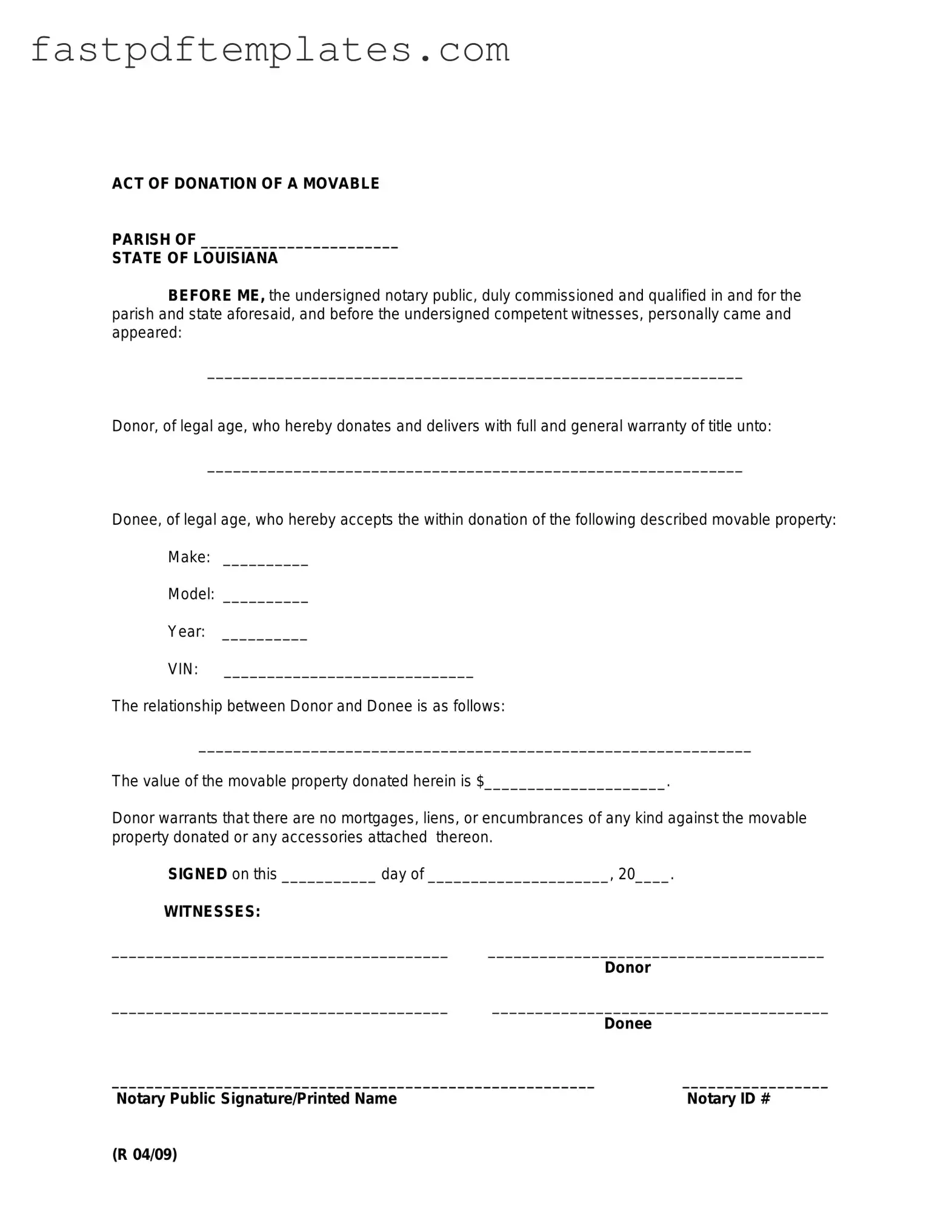Blank Louisiana act of donation Form
The Louisiana act of donation form is a legal document that allows individuals to transfer ownership of property or assets to another person without expecting anything in return. This form plays a crucial role in estate planning and charitable giving, ensuring that the donor's intentions are clearly documented. Understanding its requirements and implications is essential for anyone considering making a donation in Louisiana.
Access Document

Blank Louisiana act of donation Form
Access Document
Your form still needs completion
Complete your Louisiana act of donation online and download the final PDF.
Access Document
or
Click for PDF Form
